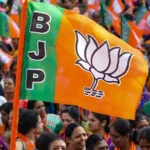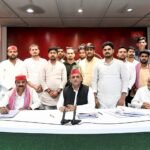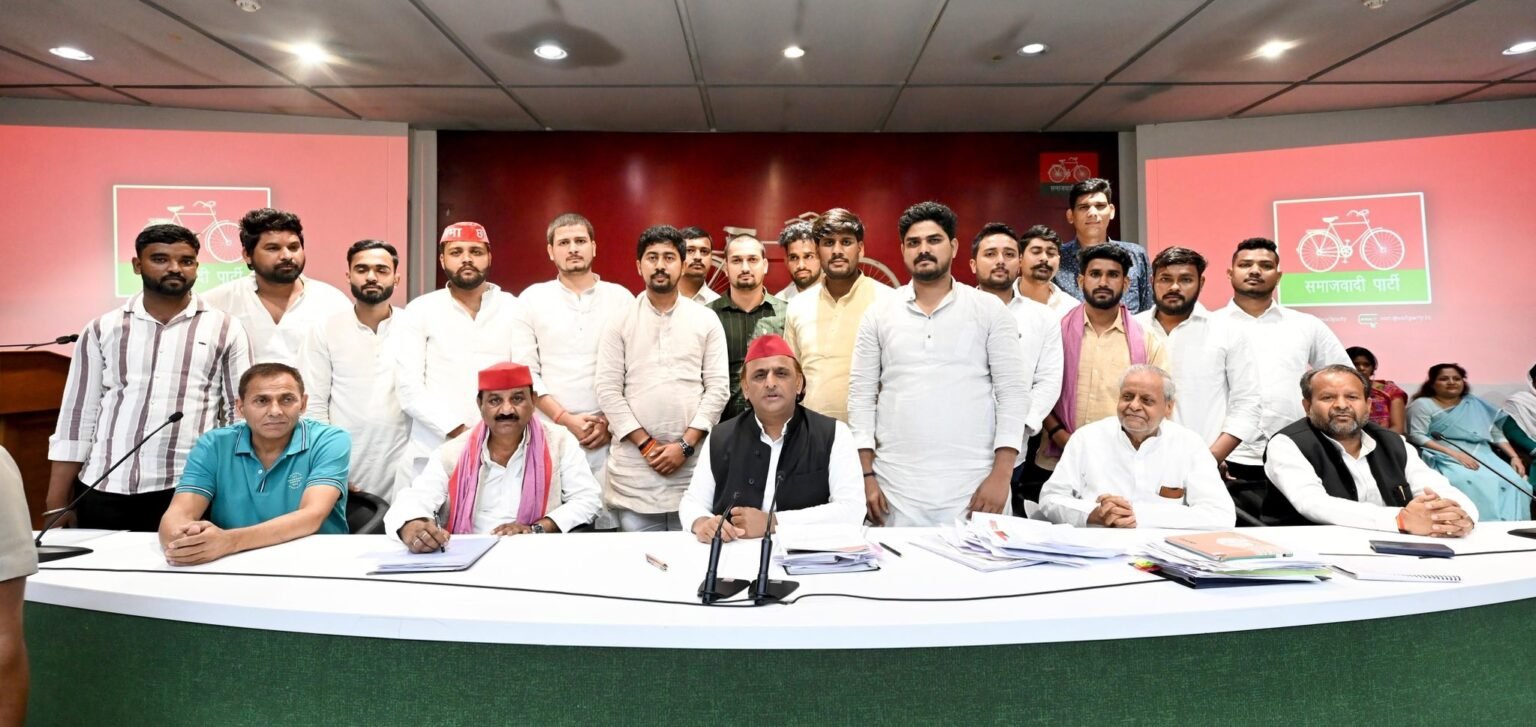
By Mohammad Tarique Saleem
Recently a political statement has stirred national debate, Samajwadi Party (SP) President Akhilesh Yadav accused the Bharatiya Janata Party (BJP) of harboring intentions to dismantle the Indian Constitution. His comment on X came in response to BJP leaders’ campaign around the phrase “Do Shabd” (Two Words), which they had urged opposition parties to speak in honor of Prime Minister Narendra Modi.
Yadav called this campaign nothing more than a distraction, asserting that “Two words is just an excuse, in reality, the true aim of the BJP and its allies is to abolish the entire Constitution. That is why, if we want to save the Constitution, the BJP must be removed.” This statement echoes the growing concern among several opposition leaders and civil society members who believe that BJP’s governance is veering towards authoritarianism.
According to them, the party’s increasing control over institutions, aggressive use of central agencies against political rivals, and efforts to redefine historical and constitutional narratives indicate a deeper ideological motive. Yadav’s words are not just rhetoric; they reflect the alarm shared by many in India’s political and academic circles.
The BJP, led by Prime Minister Modi, has often been criticized for centralizing power and sidelining institutions such as the judiciary, Election Commission, and media. While the party maintains that it is committed to constitutional values and democratic norms, opposition leaders like Akhilesh Yadav believe otherwise. They argue that the gradual erosion of democratic institutions, rising communal tensions, and dilution of federalism point toward an ideological project that seeks to transform the Indian republic from within.
Akhilesh Yadav’s critique is particularly rooted in the socialist and secular vision of his party, which sees the Constitution as a safeguard for marginalized communities, minorities, and social justice. “Saving the Constitution” is not just a political slogan for Yadav—it is presented as a necessary battle to protect the fundamental values of equality, liberty, and fraternity, which he believes are under threat under BJP rule.
The statement also aligns with broader efforts by the INDIA alliance, a coalition of opposition parties, to unite against what they describe as BJP’s majoritarian politics. As India approaches the next general elections, such statements are likely to form the core of opposition messaging, aimed at mobilizing voters who are concerned about the country’s democratic future.
Whether this warning resonates with the masses will depend on how effectively the opposition can translate it into grassroots awareness and electoral action. But one thing is clear: by challenging the BJP’s intentions toward the Constitution, Akhilesh Yadav has placed the battle for India’s democratic soul front and center in the national discourse.










